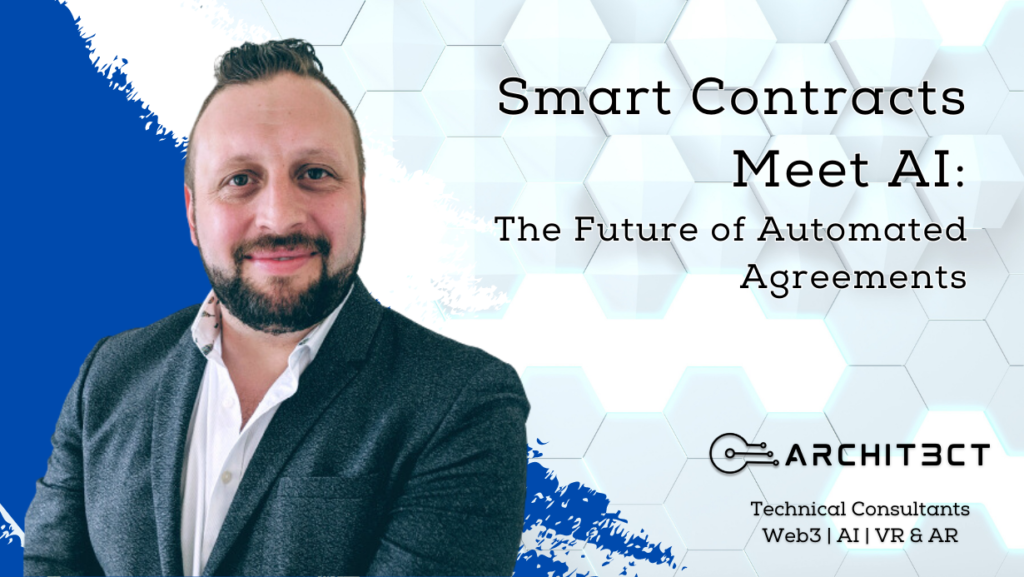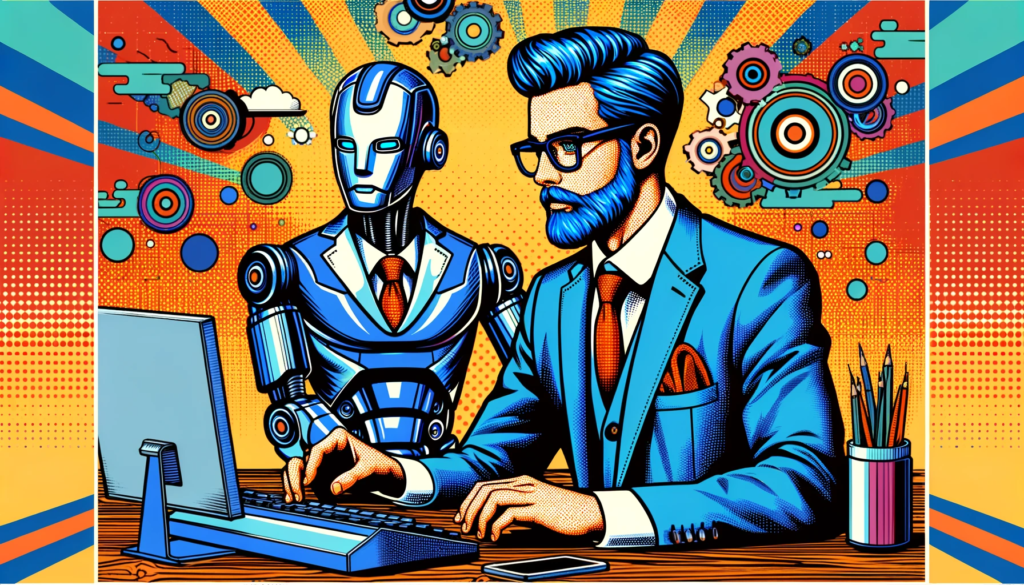The convergence of blockchain technology with Artificial Intelligence (AI) is a burgeoning frontier in the digital transformation journey. A focal point of this intersection is the integration of AI with smart contracts. These self-executing digital contracts hold immense promise for automating agreements, but this promise could be significantly expanded with AI. This article dives into the future of automated agreements to understand where smart contracts meet AI.

Decoding Smart Contracts
Smart contracts are digital contracts stored on a blockchain. Here are their main attributes:
- Self-executing: The terms of the contract are directly written into code and the contract automatically executes when the conditions are met.
- Transparent and Immutable: Due to blockchain’s immutable and transparent nature, smart contracts cannot be altered once deployed, enhancing trust among parties.
- Efficient: Smart contracts eliminate the need for intermediaries and reduce time and costs involved in contractual agreements.
Integrating AI into smart contracts can elevate these attributes to new levels.
AI and Smart Contracts: A Dynamic Duo
The amalgamation of AI with smart contracts can redefine the automation of agreements. Here’s how:
Advanced Decision-making
AI algorithms can be programmed into smart contracts to make complex decisions that would otherwise require human intervention. For instance, in an insurance claim smart contract, AI could be used to assess claim validity based on a range of variables, allowing for a nuanced, data-driven decision.
Adaptive Contracts
AI can enable smart contracts to learn and adapt over time. Machine learning algorithms could analyse transaction data to improve the contract’s decision-making processes, making the contract more effective and efficient over time.
Predictive Analysis
AI can provide predictive insights that can be integrated into smart contracts. For example, in a supply chain context, AI could predict potential delays based on factors such as weather conditions or market demand, triggering early actions to mitigate disruptions.
Enhanced Security
AI can bolster the security of smart contracts. Machine learning algorithms can detect abnormal patterns of behaviour that may signify a security breach, enabling prompt preventive measures.
However, merging AI and smart contracts also comes with its own set of challenges.
Overcoming Hurdles: Challenges in Integrating AI with Smart Contracts
Several obstacles need to be navigated for the successful integration of AI and smart contracts:
- Data Privacy: AI’s reliance on large data sets can raise data privacy concerns, necessitating careful data handling and robust privacy measures.
- Legal and Regulatory Framework: As the legal and regulatory landscape around smart contracts and AI is still evolving, ensuring compliance can be challenging.
- Technical Complexity: The integration of AI into smart contracts requires sophisticated technical knowledge, which may be a barrier for some organisations.
Conclusion: The Future of Automated Agreements
The fusion of AI and smart contracts heralds a new era for automated agreements. By enhancing decision-making capabilities, enabling adaptive functionality, providing predictive analysis, and bolstering security, AI can significantly elevate the potential of smart contracts.
Navigating the challenges of data privacy, regulatory compliance, and technical complexity is key to unlocking this potential. As we advance into this exciting future, it’s clear that AI and smart contracts together will play an instrumental role in shaping the next generation of automated agreements.

